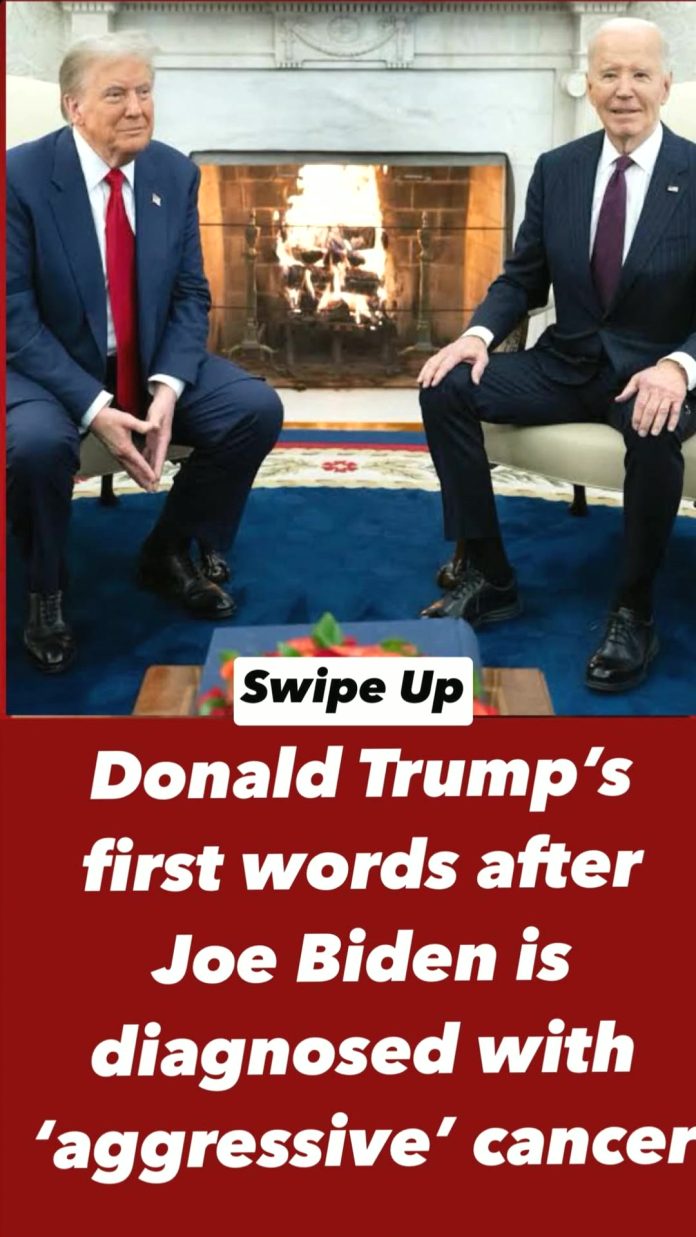When news broke that former President Joe Biden had been diagnosed with an aggressive form of prostate cancer that had spread to his bones, Donald Trump responded with a mix of sympathy and skepticism.
On his social media platform, Truth Social, Trump offered his condolences, saying, “Melania and I are saddened to hear about Joe Biden’s recent medical diagnosis.” He also added, “Joe, may you make a full recovery. Our deepest sympathies go out to Jill and the family.”

But Trump didn’t stop there. He questioned why the diagnosis was made public now, implying it should have been shared sooner. He expressed some surprise, suggesting there might be more to the story.
What caught some people’s attention was Trump’s apparent confusion about the details of Biden’s condition. He seemed to conflate the Gleason score—which measures how aggressive the prostate cancer is—with the overall stage of the disease. Trump claimed that the public wasn’t informed earlier because it takes a long time to reach stage nine. He then said, “Somebody is not telling the facts,” hinting that Biden’s medical team may have overlooked the severity or deliberately kept information from the public.

This statement has sparked ongoing discussions about transparency when it comes to presidential health. Some critics have accused Biden’s staff of hiding information, raising questions about whether Americans were fully informed about his health. Medical professionals have noted that aggressive prostate cancer can develop over several years, which leaves open the possibility that Biden’s illness was present during his presidency.
Overall, Trump’s comments have added fuel to the debate about how openly public officials should share details about their health—especially when it comes to someone in such a high-profile position.
Would you like it even more informal, more formal, or tailored for a specific audience?

